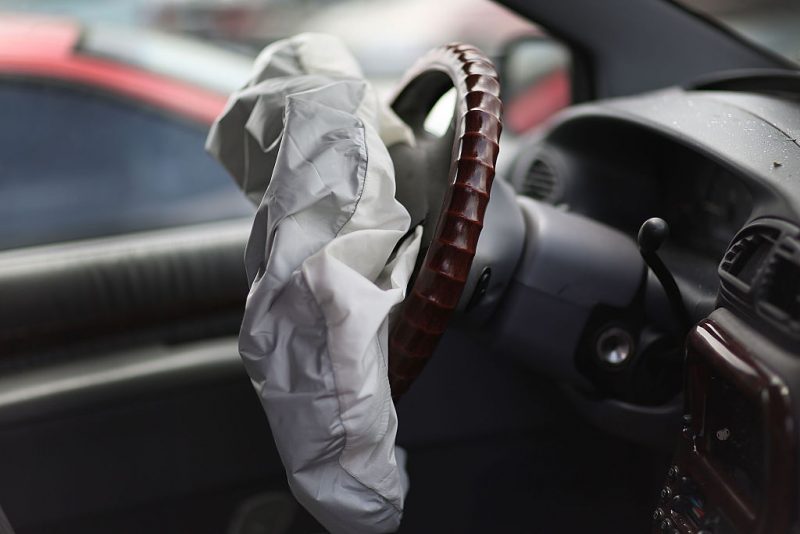

OAN’s Elizabeth Volberding
5:00 PM – Tuesday, September 5, 2023
On Tuesday, federal auto safety regulators stated that nearly 52 million airbag systems manufactured by ARC Automotive Inc. and Delphi Automotive could be dangerous to drivers and should be recalled after the parts caused two deaths that should have been prevented.
Advertisement
The National Highway Traffic Safety Administration (NHTSA) officially announced that airbag inflators from ARC and Delphi are defective after an eight-year examination, which is the first step in the agency’s course of action in forcing both companies to recall the auto parts.
Two people have been killed, one in the United States and another in Canada, by ARC inflator explosions, according to the NHTSA.
The American victim was Marlene Beaudoin, 40, from Michigan. Beaudoin was struck by metal pieces when her 2015 Chevrolet Traverse SUV was involved in a minor crash that took her life in 2021.
The agency also stated that there have been seven additional non-fatal injuries due to the airbag inflators.
According to NHTSA data, the problematic air bag systems are installed in automobiles made by Ford, GM, Stellantis, Tesla, Toyota, and Volkswagen from models made in 2000 to 2018.
“These airbag inflators may rupture when the vehicle’s air bag is commanded to deploy, causing metal debris to be forcefully ejected into the passenger compartment of the vehicle,” the agency wrote in an initial decision document. “A rupturing air bag inflator poses an unreasonable risk of serious injury or death to vehicle occupants.”
NHTSA investigators claimed that the issue was generated by the inflators due to a “welding problem” by ARC and Delphi.
They expressed that employees working at both businesses potentially created a “weld slag” throughout the manufacturing process, which is the cause of clogged vents inside the inflator canister. With the airbags supposedly being defective, the pressure can grow to the point where the canister is blown apart.
In May, NHTSA allegedly requested ARC to recall their airbag inflators, however, the company declined.
Additionally, ARC denied the speculation that its products are defective and mentioned that any issues regarding the airbags result “from random ‘one-off’ manufacturing anomalies that were properly addressed” with single recalls.
“Air bag inflators that project metal fragments into vehicle occupants, rather than properly inflating the attached air bag, create an unreasonable risk of death and injury,” Stephen Ridella, director of NHTSA’s Office of Defects Investigation, explained in a letter to ARC.
However, ARC maintains that there are no safety flaws, that the NHTSA lacks the jurisdiction to require a component manufacturer to issue recalls, and that the agency’s demand is rooted in speculation rather than technical findings.
“An airbag inflator that fails by rupture not only does not perform its job as a safety device, but instead actively threatens injury or death, even in a crash where the vehicle occupants would otherwise have been unharmed,” the NHTSA announced.
The agency wishes for ARC to recall at least twelve different automakers’ inflators used in driver and passenger front air bags.
A comprehensive list of vehicle models with the kind of airbag inflators that have exploded has not been made public by either ARC or the car industry. However, it is estimated that at least 25 million of the 284 million automobiles on American roads and highways are believed to contain them.
NHTSA officials scheduled a public hearing for October 5th and will later have the ability to seek a court-ordered recall.
Stay informed! Receive breaking news blasts directly to your inbox for free. Subscribe here. https://www.oann.com/alerts

